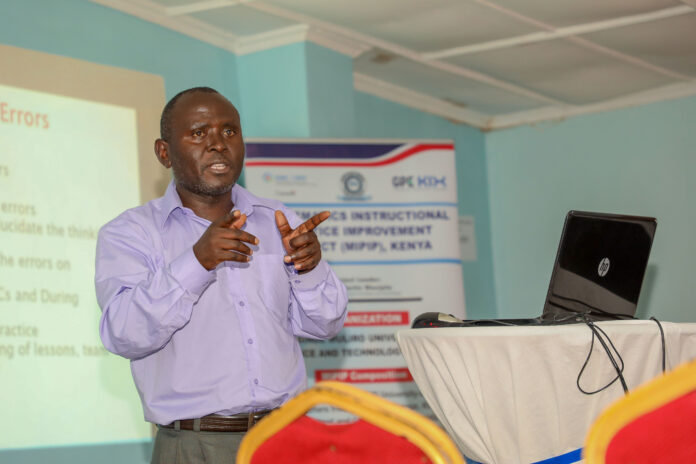By Faith Anene, Kakamega
A groundbreaking project to enhance mathematics teaching practices in Kenyan schools, led by Prof Martin Wanjala from Masinde Muliro University of Science and Technology (Mmust), has shown promising results with improvement in student performance after its pilot phase between 2021 and 2023.
The Mathematics Instructional Practices Improvement Project (MIPIP), funded by the International Development Research Centre (IDRC-CRDI), initially involved 50 math teachers from 10 schools in Kakamega County.
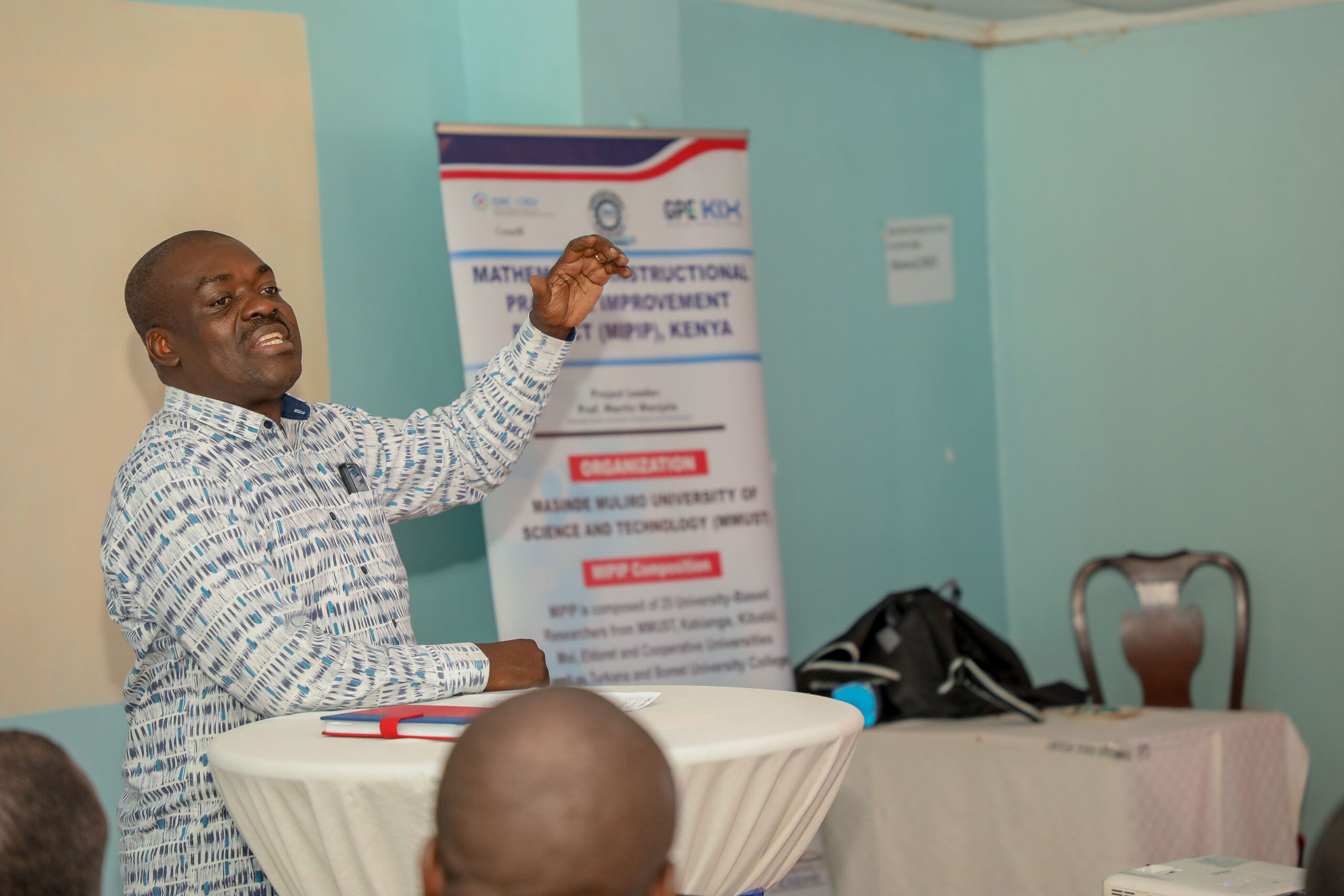
After the success of the pilot, MIPIP expanded its efforts to 11 counties across Kenya, engaging 250 teachers with the goal of improving students’ performance in mathematics through data-driven instructional strategies.
“The MIPIP, which began as a pilot in Kakamega County in 2021, has now expanded to 11 counties across Kenya, engaging over 250 teachers,” said Prof Wanjala in a press conference during a sensitization workshop at a Kakamega hotel over the weekend.
Prof Wanjala said the project focuses on addressing common mathematical errors made by learners, analyzing their root causes, and helping teachers adopt data-driven, gender-sensitive strategies to improve instructional practices.
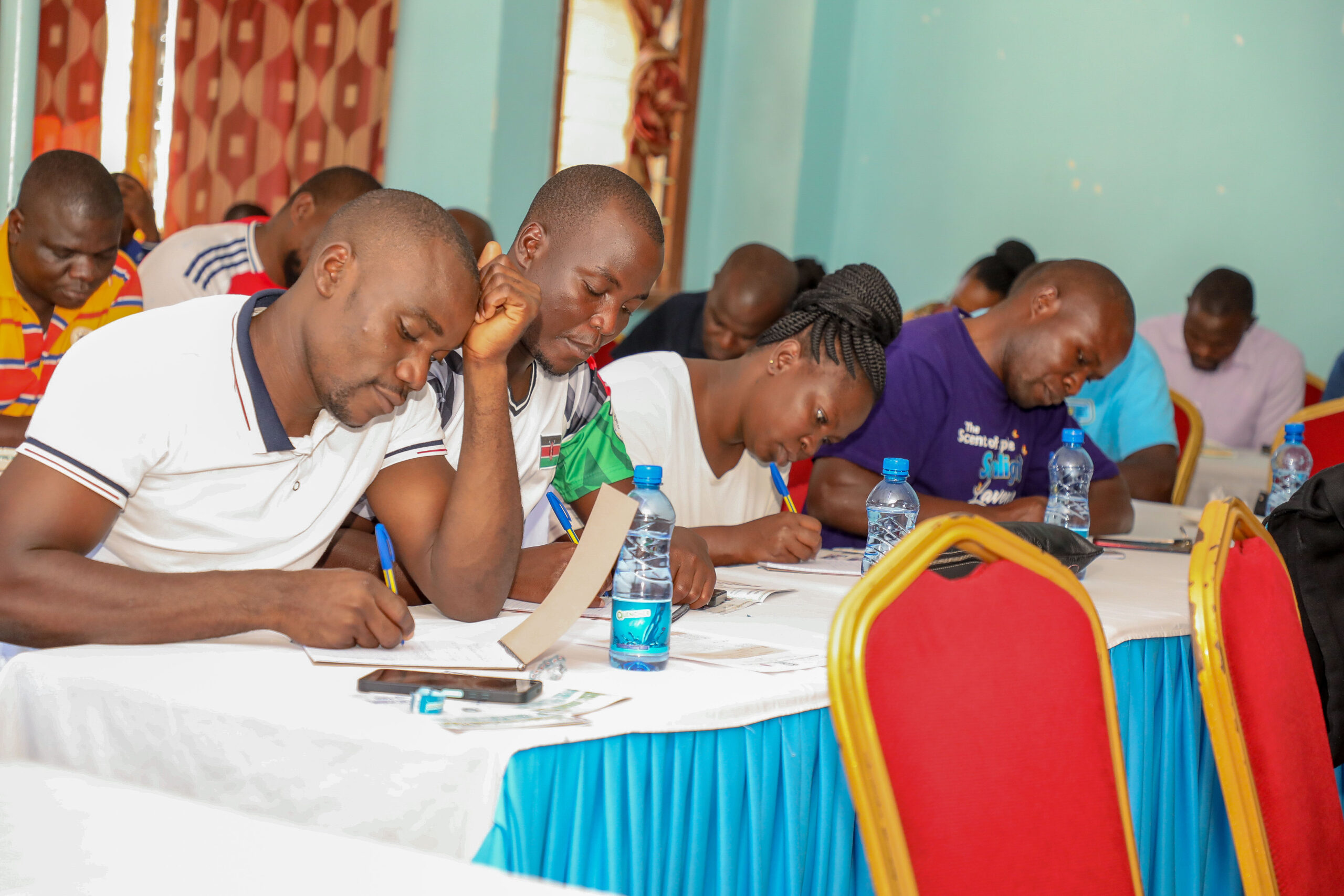
“MIPIP places a strong emphasis on gender equality, ensuring that all students, regardless of gender or background, benefit from the improved teaching methods,” said Prof Wanjala
He said that their ultimate objective is to empower students with a strong foundation in mathematics, enabling them to pursue STEM (Science, Technology, Engineering, and Mathematics) subjects such as engineering and medicine, where mathematics plays a crucial role.
Wanjala, who is the principal investigator of the project said that MIPIP is composed of 25 university based researchers from Universities of Mmust, Kibabii, Moi, Kabianga, University of Eldoret, Cooperative, Turkana and Bomet university colleges.
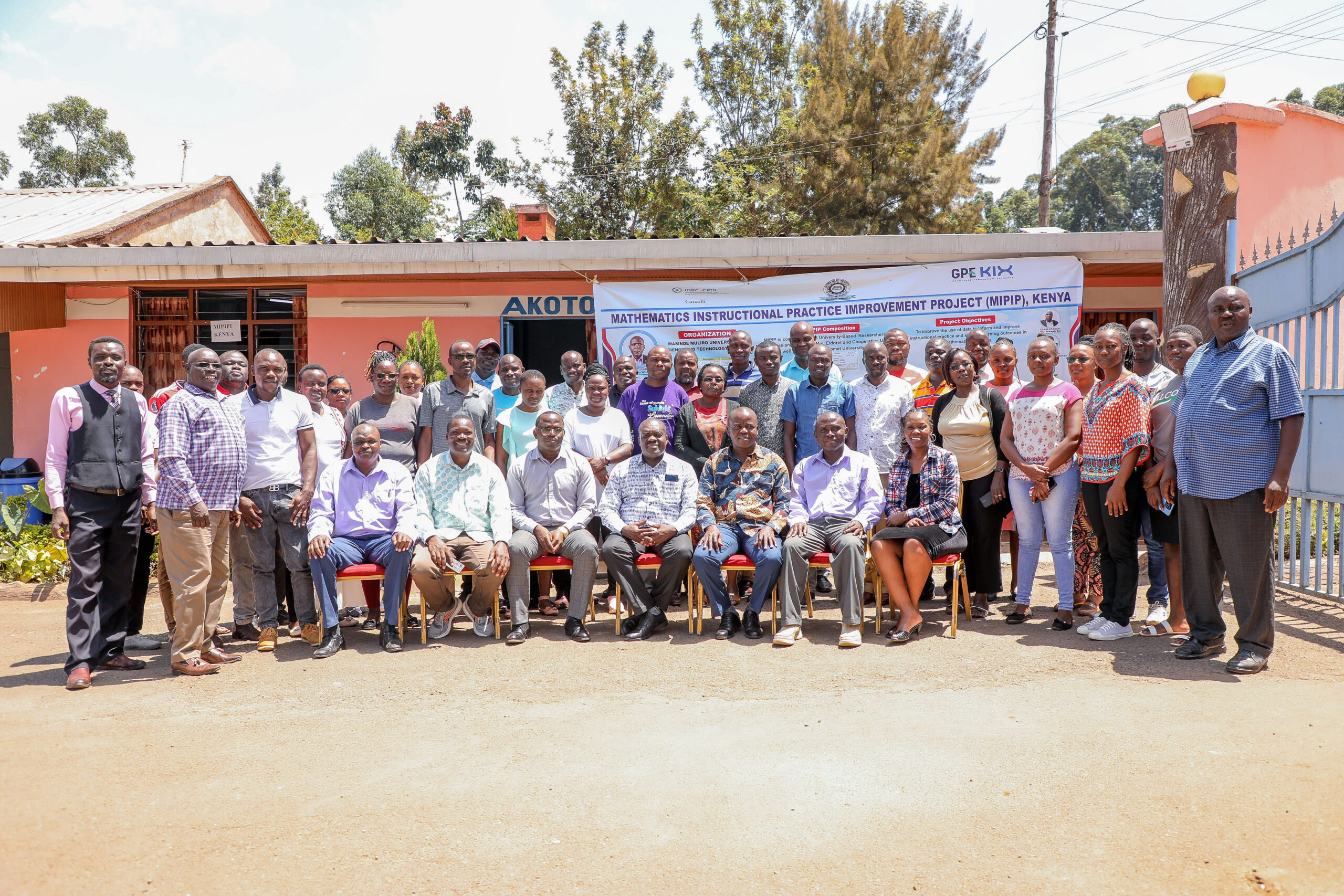
“We aim to equip teachers with the tools to analyze learners’ errors, interrogate the reasons behind these errors, and find solutions that enhance teaching practices,” said Prof Wanjala. “By working together in groups, teachers can share their insights, collaborate on effective lesson plans, and improve the quality of education, ensuring no child is left behind.”
The MIPIP approach also emphasizes on the importance of preparing mathematics content with local examples, fostering a deeper understanding of concepts. Teachers from diverse school categories collaborate to share their experiences, address disparities in learner outcomes, and discuss strategies for improving instruction.
The collaboration with the Kenya National Examination Council (KNEC) and the Kenya Institute of Curriculum Development (KICD) will also help to facilitate the scaling up of these innovations to schools nationwide.
Andrew Otieno, Deputy Director of Quality Assurance at KNEC, highlighted the importance of the initiative, noting that while some students achieve high grades, many others struggle with the subject.
“In the 2024 KCSE exams, over 33 percent (325,000) of candidates scored grade E in mathematics, which is a concerning trend,” he said. “The MIPIP project’s focus on analyzing errors and understanding the challenges faced by learners will help teachers adapt their instructional methods and improve student outcomes.”
KNEC has been working to incorporate digital assessments and competency-based evaluations, using platforms such as the CBA system, which is now being integrated into schools with the help of tablets and other digital tools. “Public schools are now embracing digital tools for content delivery, and learners are increasingly proficient in using these devices,” Otieno added.
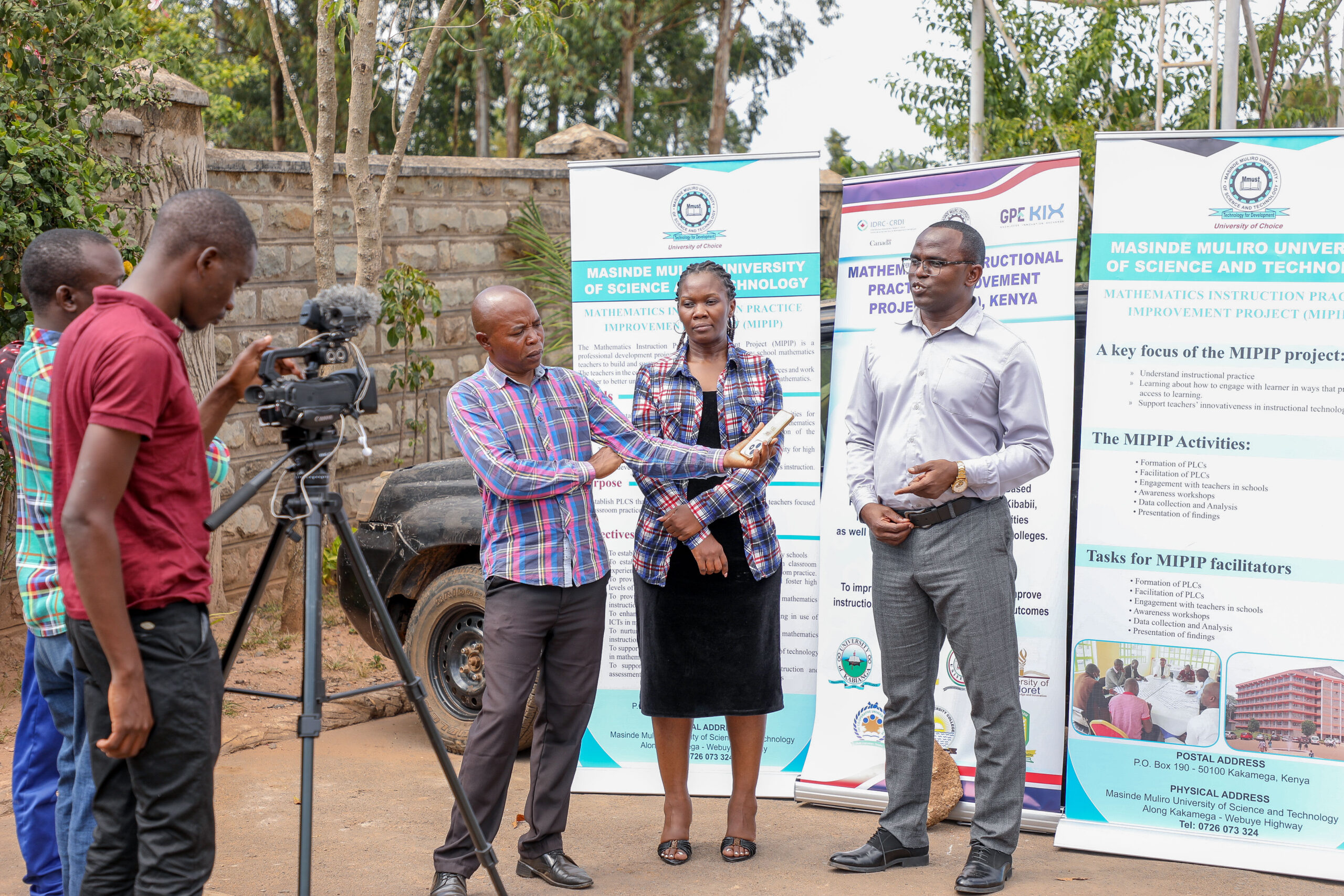
Andrew Otieno (right) Deputy Director of Quality Assurance and Patricia Omunyang’ole (left), a Senior Researcher and Quality Assurance Officer at KNEC addressing the press
Patricia Omunyang’ole, Senior Researcher and Quality Assurance Officer at KNEC, shared that the results from their ongoing assessments highlight high achievement in mathematics at lower education levels, but challenges emerge as students advance through upper primary grades. The findings from the MIPIP project, which explores the root causes of these struggles, will be vital in helping teachers address these gaps.
“At KNEC, we conduct assessments to gauge learner achievements, and we have conducted them from grade 2, 3, grade 6, and up to form 2. At lower levels, the achievements are very high in maths, but the problem begins at upper primary,” said Ms Omunyang’ole
Patrick Andika, the Assistant Director at KICD, emphasized that the curriculum developed by the institute aligns well with the goals of the MIPIP project.
“When students fail to meet the learning outcomes in exams, it raises important questions about the effectiveness of our current teaching methods. The MIPIP project’s focus on improving instructional practices, including retraining teachers and promoting learner-centered approaches, is critical for ensuring the success of the curriculum,” Andika said.
According to Andika, the research findings from the project indicate that the traditional teacher-centered approach to instruction must evolve toward more interactive and student-centered methods such as cooperative learning, inquiry-based learning, and collaborative problem-solving.
He said “these strategies are designed to engage students more deeply and develop the critical thinking, creativity, and problem-solving skills needed in the 21st century,”
“The work we are doing here is not just about improving test scores. It’s about ensuring that all learners have the skills and knowledge they need to succeed and contribute to the development of the society,” he said



